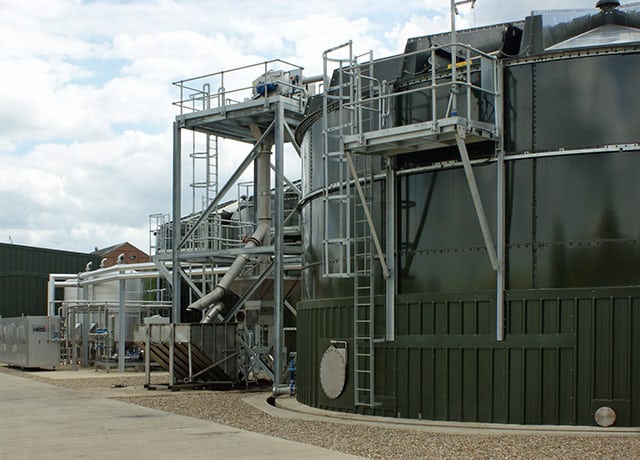Efficient biogas can help Australia meet energy targets

As climate scientists and world leaders met in Poland in December, in Australia the publication of the first ‘state of the nation’ report into the country’s bioenergy sector showed there is still much to do.
The first Bioenergy state of the nation report¹ was produced for Bioenergy Australia by KPMG and was published on 4 December 2018. It identifies that a fully developed and thriving bioeconomy could provide a $3.5-$5 billion investment opportunity, mostly in regional economies.
One renewable energy technology which provides a number of benefits in addition to low-carbon energy generation is the production of biogas through anaerobic digestion (AD). As well as producing low-carbon energy (the biogas produced can be used to generate heat and/or electricity, or can be converted into biomethane fuel), anaerobic digestion provides a method for the efficient treatment and disposal of many biological wastes. In doing so it prevents methane emissions from the uncontrolled decomposition of such waste, and it also provides a valuable product (known as digestate) which can improve soil health. With long term use this can increase the ability of soils to sequester carbon. Using digestate to fertilise soils also reduces the need for synthetic nitrogen, phosphorus and potassium fertilisers.
However, while the report recognises AD as a key technology for the conversion of biomass to bioenergy, it does not seem to give it sufficient weight nor recognise the fact that in terms of bioenergy, AD is the only technology which can provide heat (through combustion), electricity (via combined heat and power), transport fuel (compressed biomethane), domestic gas (via upgrading biogas to biomethane) and soil conditioner (digestate).
From working with the developers and operators of AD plants around the world, HRS Process Solutions knows that not all AD plants are equal, and perhaps this is why the report’s authors have had trouble categorising AD properly. The overall efficiency of the plant determines how much energy is used or wasted in processes such as pre-treating feedstock or drying digestate.
Chris Little, Managing Director at HRS Process Solutions, comments:
“Bioenergy Australia is right to say that there is ‘much to be gained through adoption of best practice approaches throughout Australia,’ and that there ‘is no shortage of viable options we can implement to drive’ Australia forward². However, the potential role of AD as one of these options seems to have attracted far less assessment than other forms of bioenergy.”
“Making biogas plants as efficient as possible will not only increase the environmental benefits they provide, but will also improve economic returns for developers and operators, helping to increase the deployment of this vital technology. HRS provides a number of systems, from feedstock pre-treatment right through to digestate management, that not only increase plant efficiency and product value, but which often do so using existing heat so as to further improve the overall environmental benefits.”
¹ https://s3-ap-southeast-2.amazonaws.com/piano.revolutionise.com.au/news/vabsvwo5pa8jnsgs.pdf
² https://www.bioenergyaustralia.org.au/news/15154/